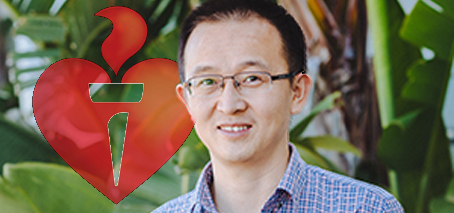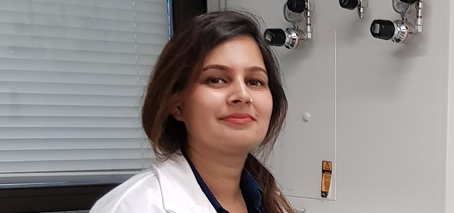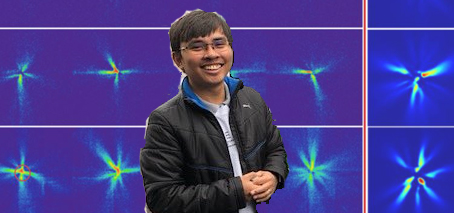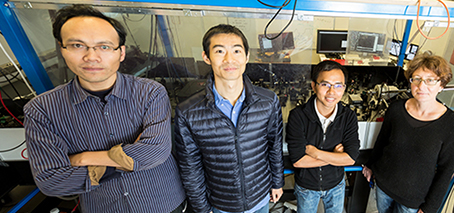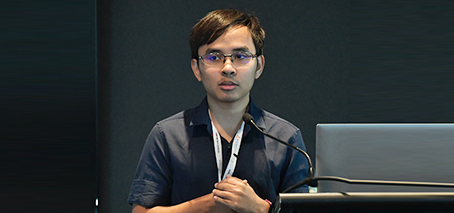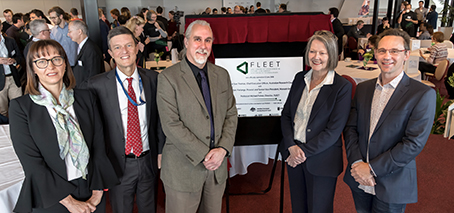FLEET Associate Investigator Professor Yuerui Lu (ANU) has been named a Heart Foundation Future Leader Fellow. The innovation of Professor Lu’s research, which focuses on the next-generation high-throughput 3D microscopy for cardiovascular imaging, was also recognised by the Foundation’s Paul Korner Innovation Award. This project aims to demonstrate proof of the concept for a novel high-throughput 3D microscope using ultra-thin, …
Three young FLEET scientists off to Lindau Nobel meeting
Three FLEET researchers have been chosen to represent Australia at the annual Lindau Nobel Laureate Meeting this year. The three FLEET researchers will among ten early-career Australian scientists attending the 69th Meeting of Nobel Laureates in Lindau, Germany, 30 June – 5 July 2019. The 69th Lindau Nobel Laureate Meeting will be dedicated to physics. To date, 42 Nobel Laureates have …
Networking and skills development: Canberra Summer School
Recognising the increasing importance of topological physics, FLEET helped run the 2018 Canberra International Physics Summer School on Topological Matter at ANU – a great opportunity for early-career Australian physicists to hear from leading experts from around the world. Over 90 attendees discovered topological materials’ applications to photonics, ultra-cold systems and quantum computation. Nobel laureate Prof Duncan Haldane (Princeton University) …
Live-streamed FLEET seminars
In 2018 FLEET began a series of live-streamed seminars to help share research results across the Centre, keep members informed on latest FLEET research, and enhance inter-node collaboration. Early-career researchers presenting the seminars gain valuable presentation experience, and benefit from feedback on their research from diverse Centre members. These seminars also provide an opportunity for regular get-togethers in each node, …
First snapshot of exciton-polariton condensation process
First snapshot of exciton-polariton Bose-Einstein condensation (BEC) in an inorganic semiconductor Unique opportunity to understand details of BEC without statistical averaging Key to fundamental understanding of exciton-polaritons An ANU advance provides never-before-achieved ‘snapshot’ of Bose-Einstein condensation. Previously, observations of exciton-polaritons in a Bose-Einstein condensate were limited to statistical averaging over millions of condensation events. ‘Snapshot’ imaging of polaritons forming a …
Polaritons and the thrill of fundamental discoveries: meet FLEET’s Eliezer Estrecho
FLEET’s Eli Estrecho recently finished his PhD, and is now a postdoctoral researcher, working with Professor Elena Ostrovskaya in the Polariton-BEC Research Group, Australian National University. We asked Eli some questions about his research, how he got into physics, and the thrill of fundamental discoveries. Q: Tell me about your research at ANU EE: I study hybrid particles of light …
Chiral flow: twisting exciton-polariton condensates at exceptional points
Outstanding problem in exciton-polariton physics resolved using exceptional points at ANU Chirality of mode at EP opens future research avenues for exciton-polariton physics Researchers at ANU recently proved a novel method for generating orbital angular momentum states (vortices), with a topological charge that is ensured by an exceptional point. Recent studies at the ANU resolve an outstanding problem in exciton-polariton …
Trapping light–matter particles at ANU
FLEET collaboration traps light–matter particles FLEET’s Research theme 2 seeks to create near-zero resistance flow of exciton polaritons, which are hybrid quasi-particles that are part matter and part light. Their ability to flow without resistance relies on formation of an exciton-polariton condensate – a collective quantum state that behaves as a superfluid. In superfluids, particles flow without encountering any resistance …
Launch of FLEET Centre of Excellence to tackle hidden energy costs of computing
Official launch: Australian Research Council Centre of Excellence in Future Low-Energy Electronics Technologies 12 June 2018, 11 AM New Horizons Building, Monash University, Clayton We have an insatiable appetite for computing. But our ongoing need for computation is burning more than 5 percent of global electricity. And that figure is expected to double each decade. A new Australian Research Council …
Research in Light-Transformed Materials
FLEET researchers undertake various research projects in the area of Light-Transformed Materials. If you have a project that would fit this theme, find information about a potential supervisor here: PROF. KRIS HELMERSON Ultracold atomic gases Biophysics Biotechnology A/PROF. MEERA PARISH Theory of strongly correlated phenomena in ultracold atomic gases and electron systems Superconductivity and superfluidity Lowdimensional systems Magnetotransport DR. AGUSTIN …
Research in Exciton Superfluids
FLEET researchers undertake various research projects in the area of Exciton Superfluids. If you have a project that would fit this theme, find information about a potential supervisor here: A/PROF. MEERA PARISH Theory of strongly correlated phenomena in ultracold atomic gases and electron systems Superconductivity and superfluidity Lowdimensional systems Magnetotransport A/PROF. QIAOLIANG BAO Atomically thin optical materials (graphene, 2D transition …
Light-matter research recognised
FLEET research has been highlighted at an important conference in Würzburg, Germany. Eli Estrecho, a PhD student in Elena Ostrovskaya’s group at ANU, won the 1st “Gold” award (and €500) for the best poster presentation entitled ‘Single-shot imaging of exciton-polariton condensates’ and David Colas, a Postdoctoral Fellow in Matt Davis’ group won one of the 3rd “Bronze” prizes for his poster …
- Page 2 of 2
- 1
- 2

